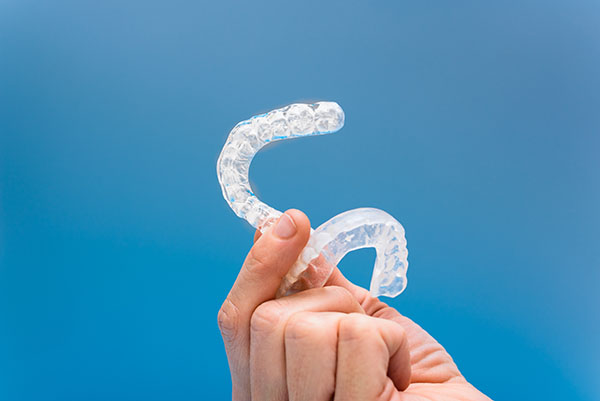What Is Bruxism?
Bruxism is commonly referred to as “teeth grinding,” but it encompasses various involuntary jaw and teeth movements while sleeping, such as clenching and gnashing. If you sleep next to someone with bruxism, you’ll notice their mouth make chewing-like movements, and you’ll hear a grinding sound of their teeth. Mild cases of bruxism are generally left untreated, but strong cases can lead to a host of oral health problems and can cause chronic discomfort or aching in the jaw and neck muscles.
What Are the Causes of Bruxism?
Bruxism is most common in children, teenagers, and young adults. Bruxism can start as early as the toddler years when children have all their baby teeth. The frequency of bruxism tends to dwindle as we get older. While the exact causes of bruxism are not fully understood, correlations have been made between jaw clenching and high levels of stress and anxiety. Patients who suffer from bruxism are more likely to experience other sleep disorders as well. Some studies have also shown there may be links with genetics, smoking, and alcohol consumption.
How Do I Know If I Suffer from Bruxism?
Most individuals don’t learn about their bruxism until someone else tells them they are grinding their teeth at night. Some individuals only learn about their bruxism once their dentist notices the wear and tear on their teeth. Aside from the long-term damage bruxism can cause to your teeth, other signs that you might be clenching or grinding more than usual during your sleep is if you frequently wake up with a headache and pain in your neck, jaw, and shoulders. Other signs of bruxism include interrupted sleep, sensitive teeth, tooth pain, and a locked jaw.



